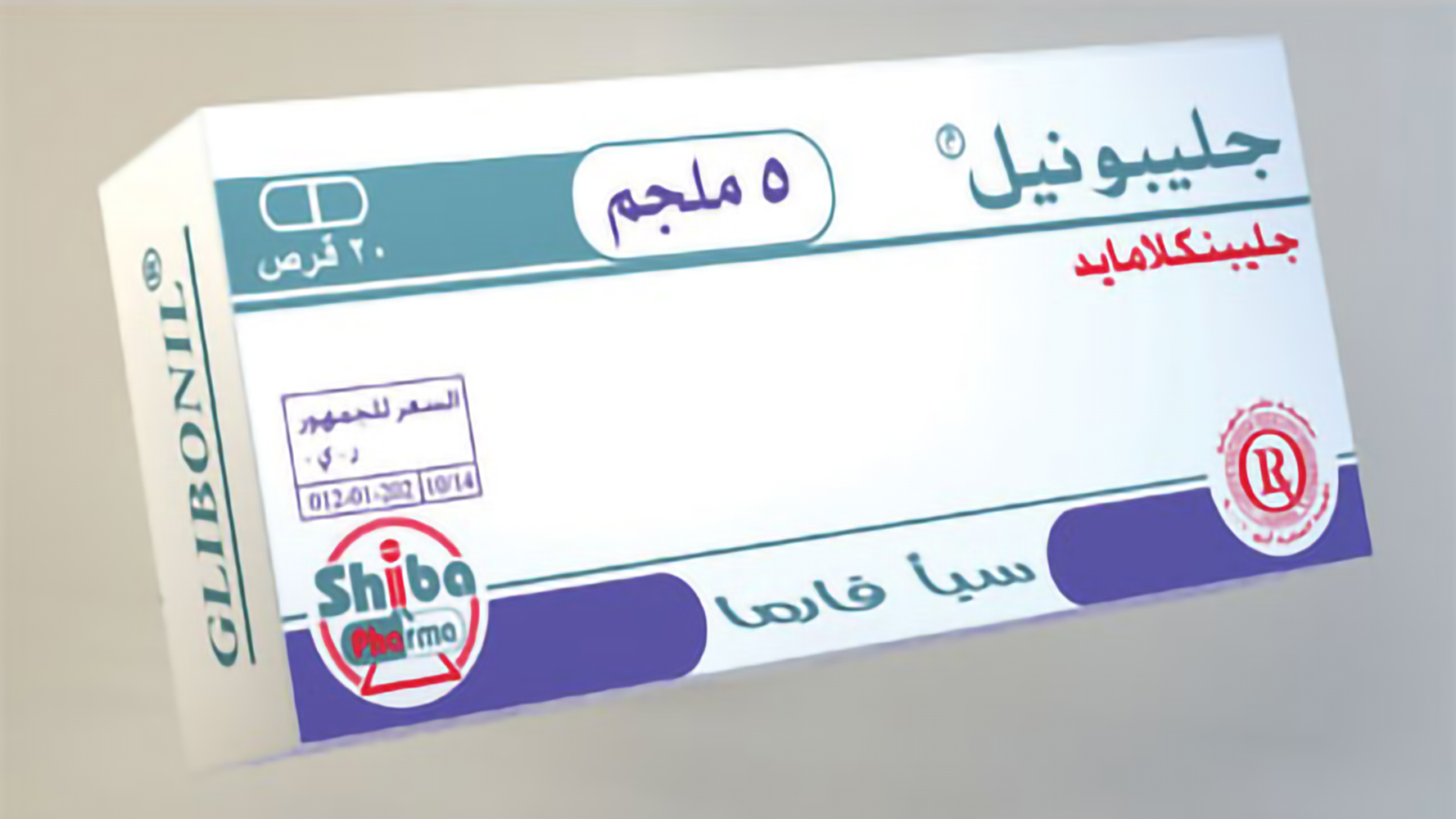Section :
Glibonil
COMPOSITION : Each tablet contains : Glibenclamide B.P. 2.5 , 5 mg. DESCRIPTION: Glibonil ( Glibenclamide ) is a sulphonylurea hypoglycaemic agent . Glibenclamide effect is decreasing blood glucose levels by stimulating insulin release from pancreatic beta cells and increasing insulin binding receptor density in periphral tissues . Glibenclamide is rapidly absorbed and the onset of action occurs within 3 hours with a duration of up to 15 hours and it is strongly protein bound. The drug is metabolised extensively in the liver. The half life of Glibenclamide is 5 - 10 hours and it is excreted via bile and urine. INDICATIONS : Glibenclamide is indicated for non-insulin dependent diabetes ( type 2 diabetes ) who respond inadequately to dietary measures alone. DOSAGE & ADMINISTRATION : The dosage of Glibenclamide is governed by the desired blood glucose level. - The usual total daily dosage is 2.5 mg to 15 mg with a usual initial dose of 5 mg. Doses of 10 mg or less may be taken as a single dose immediately before breakfast, if the daily dose exceed 10 mg , the remainder should be taken immediatly before the evening meal. - If the patient forget to take Glibonil tablet , he must take one tablet at the next meal. RESTRICTIONS ON USE : Contraindications - Allergy to Glibenclamide or other sulfonylureas or sulphonamides or to any of the ingredients . - Patients who have insulin-dependent diabetes mellitus , patients who have diabetic ketoacidosis or diabetic coma . - Patients who have severe liver or kidney disease . - Juvenile diabetes and children. - Patients with porphyria. - Pregnancy and lactation. Precautions - Patients with galactose intolerance , glucose - galactose malabsorption syndrome . - Patients who have glucose-6-phosphate dehydrogenase deficiency since Glibenclamide cause hemolysis. - Hypoglycemia ( decreased blood sugar levels ) may occur during treatment with Glibenclamide . Signs of hypoglycemia include headache, hunger , nausea , shaking , sweating , paleness , tiredness , drowsiness , feeling of faintness , dizziness , vision and speech disturbances, aggressiveness, depression , confusion , impaired alertness, difficulty concentrating , sleep disorders and heart disorders. To avoid this side effects , patient should be aware of the following : ֺEat regular meals including breakfast and the patient should not forget a meal and should eat enough. ֺHypoglycemia is more likely to occur if the diet is unbalanced , after prolonged or intense exercise or if the patient takes other blood sugar lowering medicines. ֺAge , kidney or liver failure and some adrenal or pitutary gland disorders can promote hypoglycemia. Effects on the capacity to drive vehicles or use machines Glibenclamide may cause hypoglycemia which affects on alertness . Use in Pregnancy & Lactation Glibenclamide must not be taken during pregnancy and the patient must change over to insulin, also it must not be taken by breast-feeding women. DRUGS INTERACTIONS : - Administration of medicines that increase hypoglycemia such as miconazole , phenyl butazone , beta-blockers ( except esmolol ), fluconazole , converting enzyme inhibitors , clarithromycin , erythromycin , alcohol . - Administration of medicines that cause hyperglycemia such as danazole , chlorpromazine , glucocorticoids (except hydrocortisone), salbutamol , terbutaline because they reduce the efficacy of Glibenclamide. - Administration of bosentan due to the risk of increase in certain liver enzymes. ADVERSE EFFECTS : Hypoglycemia , temporary vision disturbances, nausea, vomiting, diarrhea, stomach discomfort, hives , itching, skin rash possibly leading to symptoms such as breathlessness and even shock, allergic vasculitis, abnormal laboratory values for liver and kidney tests and blood cells, jaundice, hepatitis, porphyria, feeling hot , redness. OVERDOSAGE : Acute overdose of Glibenclamide may lead to severe life threatening hypoglycemia . Management of overdoses : The patient must immediately take sugar. In case of unconsciousness , an intravenous injection of concentrated glucose solution is indicated ( for adults starting with 40 ml of 20% solution ). STORAGE INSTRUCTIONS : Store below 30oC, in a dry place. PRESENTATION : Glibonil 2.5 Tablets : Pack of 20 tablets and hospital packs of different sizes. Glibonil 5 Tablets : Pack of 20 tablets and hospital packs of different sizes. Glibonil


